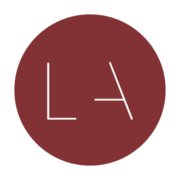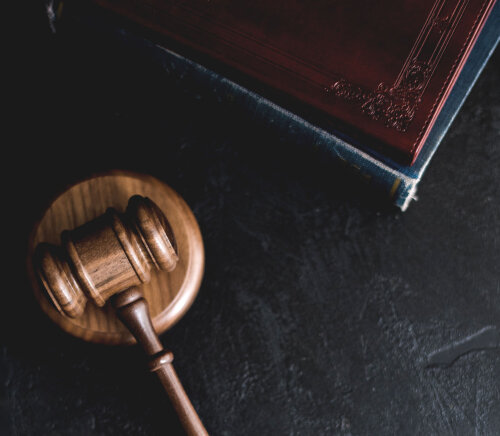Best Accounting & Auditing Lawyers in Kloof
Share your needs with us, get contacted by law firms.
Free. Takes 2 min.
List of the best lawyers in Kloof, South Africa
About Accounting & Auditing Law in Kloof, South Africa
The field of Accounting & Auditing in Kloof, South Africa, plays a vital role in ensuring the accuracy and integrity of financial reporting and compliance with the financial regulations. Due to its dynamic business environment, Kloof has seen a growing demand for proficient accounting and auditing services. This demand necessitates a thorough understanding of local financial laws and practices, which are crucial for businesses aiming to operate successfully and within the law. Accounting & Auditing law in Kloof covers various aspects such as financial reporting, taxation, auditing standards, and corporate governance.
Why You May Need a Lawyer
There are several situations where individuals and businesses in Kloof might require legal assistance in Accounting & Auditing:
- Compliance Issues: Ensuring adherence to local and national financial regulations and standards can be complex. Professional legal guidance is often needed to navigate compliance requirements effectively.
- Tax Disputes: Complex tax regulations may lead to disputes with tax authorities. A lawyer specialized in taxation can assist in resolving these matters.
- Audit Discrepancies: If audit findings conflict with management's records, legal counsel may be needed to mediate and resolve discrepancies.
- Fraud Investigations: In cases of suspected fraud, legal expertise is crucial to conduct investigations and take appropriate legal action.
- Business Transactions: Legal expertise ensures that mergers, acquisitions, and other business transactions comply with financial and auditing laws.
Local Laws Overview
Kloof, like the rest of South Africa, implements the International Financial Reporting Standards (IFRS) and the South African Institute of Chartered Accountants (SAICA) standards to guide accounting practices. Key aspects include:
- Companies Act: Outlines principles for corporate governance and financial transparency.
- Tax Administration Act: Governs the administration of tax laws, including dispute resolution and compliance procedures.
- Auditing Profession Act: Regulates auditing practices and ensures adherence to acceptable standards of auditing.
- Public Finance Management Act: Guides financial management and accountability in governmental spheres.
Frequently Asked Questions
What is the importance of auditing in Kloof?
Auditing provides an independent assurance that an organization's financial reports are accurate, enhancing their credibility to stakeholders such as investors, regulators, and the public.
Who regulates the accounting profession in Kloof?
The South African Institute of Chartered Accountants (SAICA) and the Independent Regulatory Board for Auditors (IRBA) oversee the accounting and auditing professions in South Africa, including Kloof.
What should I do if I suspect financial misconduct in my company?
Seek immediate legal advice. A lawyer can guide you on the necessary steps to investigate and address potential financial misconduct, ensuring compliance with legal and ethical standards.
Are there special considerations for small businesses regarding accounting laws?
Yes, small businesses might qualify for certain exemptions and simplified reporting under South African law. Consulting with a legal advisor ensures you're leveraging these appropriately.
Can I represent myself in a tax dispute?
While you can represent yourself, the complexity of tax laws makes it advisable to seek professional legal representation to effectively navigate and resolve disputes.
What are the penalties for non-compliance with accounting standards?
Penalties may range from fines and sanctions to the revocation of licenses and even criminal charges, depending on the severity of the non-compliance.
How often should my business conduct an audit?
This depends on factors such as company size, industry regulations, and stakeholder requirements. Typically, annual audits are standard for most businesses.
What steps are involved in a legal audit process?
A legal audit process generally includes planning, gathering evidence, understanding policies and procedures, testing, and issuing a report of findings and recommendations.
Is it necessary to have an in-house accountant if I'm a small business owner?
While not mandatory, having an in-house accountant can be beneficial for maintaining accurate financial records and ensuring ongoing compliance with financial regulations.
What is the role of the Companies and Intellectual Property Commission (CIPC)?
The CIPC oversees the registration of companies and intellectual property rights and ensures compliance with the Companies Act.
Additional Resources
Several resources and organizations can provide additional support for accounting and auditing needs in Kloof:
- South African Revenue Service (SARS): Provides guidance on tax compliance and resources.
- South African Institute of Chartered Accountants (SAICA): Offers information on accounting regulations and professional resources.
- Independent Regulatory Board for Auditors (IRBA): Regulates the auditing profession in South Africa.
- Companies and Intellectual Property Commission (CIPC): Oversees corporate compliance and registration.
Next Steps
If you require legal assistance with accounting or auditing in Kloof, consider taking the following steps:
- Consult a Specialist: Reach out to a lawyer specializing in accounting and auditing law to discuss your specific needs and situation.
- Gather Documentation: Compile all relevant financial documents and records to provide a comprehensive overview to your legal advisor.
- Explore Local Services: Contact professional bodies such as SAICA or IRBA for recommendations on legal experts in your area.
- Consider a Consultation: Many law firms offer initial consultations to assess your needs and recommend the best course of action.
Lawzana helps you find the best lawyers and law firms in Kloof through a curated and pre-screened list of qualified legal professionals. Our platform offers rankings and detailed profiles of attorneys and law firms, allowing you to compare based on practice areas, including Accounting & Auditing, experience, and client feedback.
Each profile includes a description of the firm's areas of practice, client reviews, team members and partners, year of establishment, spoken languages, office locations, contact information, social media presence, and any published articles or resources. Most firms on our platform speak English and are experienced in both local and international legal matters.
Get a quote from top-rated law firms in Kloof, South Africa — quickly, securely, and without unnecessary hassle.
Disclaimer:
The information provided on this page is for general informational purposes only and does not constitute legal advice. While we strive to ensure the accuracy and relevance of the content, legal information may change over time, and interpretations of the law can vary. You should always consult with a qualified legal professional for advice specific to your situation.
We disclaim all liability for actions taken or not taken based on the content of this page. If you believe any information is incorrect or outdated, please contact us, and we will review and update it where appropriate.









